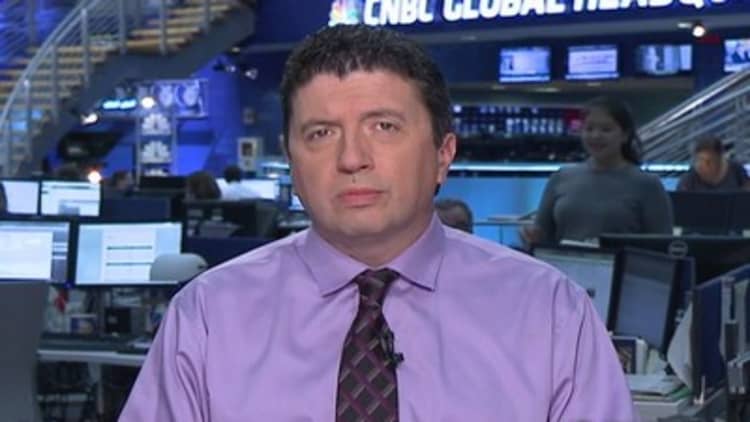
Another big Wall Street bank is reporting some serious problems with its trading book, raising questions over just how bad things are getting for big financial institutions.
Citigroup has joined the ranks of those with trading troubles, as a high-ranking official told the Deutsche Bank 2014 Global Financial Services Investor Conference Tuesday that adjusted trading revenue probably will decline 20 percent to 25 percent in the second quarter on an annualized basis.
"People are uncertain," Chief Financial Officer John Gerspach said of investor behavior, according to an account from the Wall Street Journal. "There just isn't a lot of movement."
In recent weeks, officials at JPMorgan Chase and Barclays also both reported likely drops in trading revenue. JPMorgan said it expected a decline of 20 percent of the quarter, while Barclays anticipates a 41 percent drop, prompting it to announce mass layoffs that will pare 19,000 jobs by the end of 2016.
Read MoreThese are bad days for big boys in high finance
Indeed, Citi is far from the only bank experiencing such problems.
The general tenor of comments at the Deutsche conference reflected an air of worry.
Various bank officials said a low-volatility environment has created a difficult climate. The is at its lowest level of the year as broad equity indexes continue to push to new highs.
"Until you see volatility increase, trading revenue in general will be challenged," Barclays analyst Jason Goldberg said at the conference, according to the Journal.
Read MoreWhat Citi's trading woes say about the market
Citi's trading loss in particular comes at a rough time for the bank, which had its capital plan to do a share buyback program and issue a dividend rejected by the Federal Reserve in March following the central bank's latest round of stress tests.
The Fed based its rejection on what it deemed an inadequate plan from Citi to prepare for another recession. Big banks have been under scrutiny since the bailouts that accompanied the financial crisis of 2008 and 2009.
Gerspach called the rejection "deeply disappointing."
Read MoreCiti's 2Q trading revenue down at least 20%
In addition to the trading dollar losses, the firm also recently saw its head of global equities trading leave. Mike Pringle departed to join Moore Capital, a $12 billion European hedge fund.
Despite the bad news, Citi shares were little changed in Wednesday trading but have fallen nearly 9 percent in 2014.
As a sector, the financials are up about 1.5 percent for the year, the second worst sector after consumer discretionary and trailing the broader index's gain of 3.7 percent.
—By CNBC's Jeff Cox






